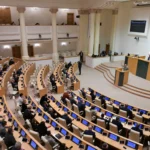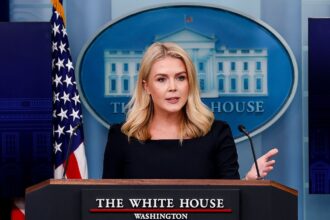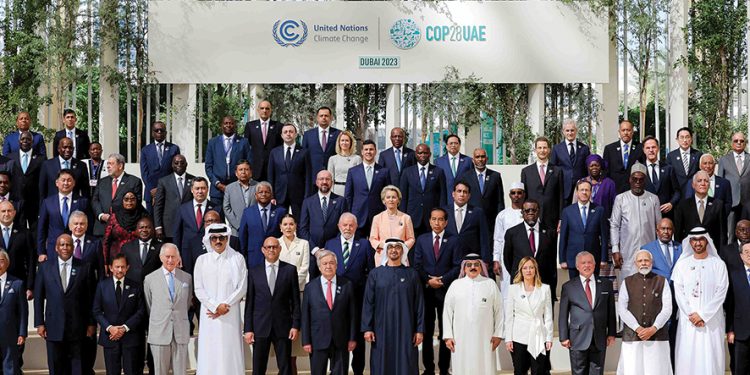COP is an acronym for “Conference of the Parties”, and refers to the meetings held internationally under the United Nations Framework Convention on Climate Change. UNFCCC facilitates negotiations aimed limiting dangerous climate changes.
The UNFCCC’s main decision-making body, the COP, is composed of representatives of all participating countries (known as “Parties”)
The UNFCCC COP is held annually and provides a forum to discuss new initiatives, assess progress, and evaluate the overall goal of UNFCCC. This is especially true for the Paris Agreement, a legally binding international treaty relating to climate change that was adopted by 196 parties at COP21, in Paris, in 2015.
The Paris Agreement’s overarching goal is to limit “the global average temperature increase to well below 2degC” and to pursue efforts to “limit the temperature increase to 1,5degC”.
To limit global warming at 1.5degC, greenhouse gases emissions must peak by 2025 and then decline by 43% before 2030.
The COP29 will be held in Baku, Azerbaijan from 11-22 November, 2024.
Why is climate change a global issue of such urgency?
Climate change is a long-term shift in weather patterns and temperatures. These shifts can occur naturally, but human activities, such as the burning of fossil fuels, like coal, oil, and gas, have been the main drivers of climate change since the Industrial Revolution in the 19th Century.
The burning of fossil fuels produces greenhouse gas emissions, which act as a blanket around the Earth. They trap the heat from the sun and raise temperatures.
The average temperature on Earth’s surface has increased by 1.2degC since the late 1800s and is higher than any time in the past 100,000 years. The last decade (2011-2010) was the warmest ever recorded, and each of these four decades have been warmer than any decade prior to 1850.
Many people believe that climate change is mainly about warmer temperatures. This is just the beginning. Changes in one area of the Earth can affect changes in other areas.
Climate change is causing severe droughts, water scarcity and fires. It also causes rising sea levels and flooding. Polar ice melting, catastrophic storms, and a decline in biodiversity.
Scientists agree on the importance of limiting global temperatures to 1.5degC or less. This would allow us to avoid the worst climate impacts, and maintain a climate that is livable. The policies in place today point to a temperature rise of 3degC by the end century.
By switching from fossil fuels, such as coal and oil, to renewable energy sources like solar or wind (Editor’s Note: and reducing or eliminating animal agriculture), we can reduce the emissions that cause climate change. But we must act now. As more countries commit to net zero emissions in 2050, the emissions must be reduced by half by 2030 in order to keep global warming below 1.5degC. This requires a massive decline in coal, oil, and gas use.
How does the EU address climate change in its eastern partner countries?
Together towards environmental and climate resilient is one of five long-term Eastern Partnership policies objectives beyond 2020. The EU has pledged, among other things, to “help partner nations fulfil their nationally determined contribution to the Paris Agreement, modernise their economy, reduce their carbon footprint, and move towards climate neutrality”.
The EU’s Economic and Investment Plan for the EaP aims to:
* Strengthen climate policies and green investments
* Help partner countries implement their national determined contributions to Paris Agreement.
* Increase climate and green finance targeting municipal infrastructure, sustainable transport, the energy industry and SMEs.
* Strengthen EU product and ecoinnovation policies
* Support improved waste management, and increase recycling.
In Armenia, the EIP includes Investing in Green Yerevan, which supports energy-efficient solutions for the Armenian capital. This includes the delivery of green busses and energy renovations of 51 kindergartens.
In Azerbaijan the EIP has focused on investing in sustainable infrastructures and solutions for green cities. This has resulted in significant energy savings through the upgrading of more than 80% street lighting infrastructure in Ganja.
In Georgia, the EU invests in cleaner air for 1,000,000 people and energy efficiency. Thanks to EU investment, Georgia now has the first commercial wind farm of the Caucasus.
The Economic Investment Plan in Moldova aims to refurbish district heating systems in residential building in Chisinau, Balti and Balti in a more energy-efficient manner. Thanks to EU funding, 15,700 people have now access to safe drinking waters.
The EU is working in Ukraine through the Ukraine Facility to support recovery, reconstruction and modernization against Russian aggression. The Ukraine Facility will allocate at least 20% of total investments to contribute to climate change adaptation and mitigation, environmental protection including biodiversity conservation and the green transition.
The EU also funds a number regional programs that work across the countries of Eastern Partnership. These include:
* EU4ClimateResilience supports the green transition and climate resilient.
* EU4Environment’s Green Economy helps to preserve natural resources and increase the well-being of people.
* EU4Environment Water Resources & Environmental Data Supporting a More Sustainable Use of Water Resources
Similarly, European Financial Institutions like the European Bank for Reconstruction and Development and the European Investment Bank provide significant support for the transition to a green economy. They do this by investing in green infrastructures and supporting low-carbon and climate resilient growth. The Eastern Europe Environment and Energy Efficiency Partnership E5P – a multidonor trust fund, of which the EU as the largest donor – facilitates investment for municipal projects to improve energy efficiency and environment protection. The EU contributes significantly to the Green for Growth Fund.
Climate action is a priority at the country level as well. EU-funded programs focus on areas like air quality, water pollution and marine management, energy efficiency, waste disposal, pesticides, industrial pollution and sustainable forest management.
Next week’s GT will tell you how YOU can help the planet and join the global movement.
The EUneighbourseast Team
Read More @ georgiatoday.ge













